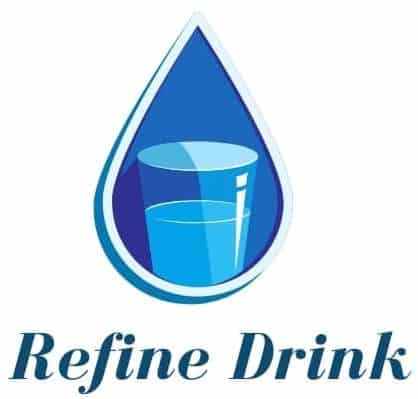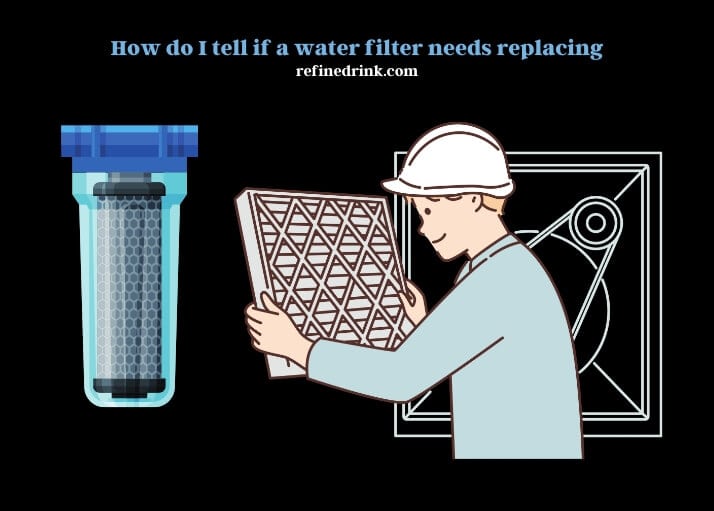Discover the top 15 signs to look for when wondering, “How do I tell if a water filter needs replacing?” Ensure the safety and quality of your drinking water with expert advice.
Water filters play a vital role in ensuring the quality of our drinking water. But how do you know when it’s time to replace your water filter? In this comprehensive guide, we will walk you through the 15 key signs to help you determine if your water filter needs replacing.
Whether you’re using a pitcher filter, faucet filter, or a whole-house filtration system, these signs will help you maintain clean and safe drinking water. Let’s dive in!
How do I tell if a water filter needs replacing?
- Slow Water Flow: If you notice that the water flow from your faucet or filter is significantly slower than usual, it may be time to replace the filter. A clogged filter can hinder water flow and reduce its effectiveness in removing contaminants.
- Unpleasant Taste or Odor: One of the most obvious signs of a failing water filter is a change in the taste or odor of your tap water. If your water starts to taste or smell unpleasant, it’s a clear indicator that your filter may no longer be effective.
- Murky Water: Cloudy or discolored water coming from your filter is a cause for concern. It suggests that the filter is no longer effectively removing impurities, and it’s time for a replacement.
- Increased Frequency of Filter Changes: If you find yourself changing your filter more frequently than usual, it’s a sign that your water quality may have deteriorated. This could be due to increased contaminants or a filter that’s no longer functioning optimally.
- Visible Sediment in Water: If you notice visible particles or sediment in your water, your filter might not be doing its job properly. It’s crucial to address this issue promptly to ensure your water’s safety.
- Drop in Water Pressure: A sudden drop in water pressure can be a sign of a clogged filter. Check your filter and replace it if necessary to restore normal water pressure.
- Filter Age: Most water filters come with a recommended lifespan. If you’re unsure when you last replaced your filter, it’s wise to do so if it’s been longer than the manufacturer’s suggested timeframe.
- Bacterial Contamination: If you suspect bacterial contamination in your water supply, it’s essential to replace your filter immediately to prevent health risks.
- Reduced Filtering Efficiency: Over time, water filters can lose their ability to effectively remove contaminants. If you’ve noticed that your filter isn’t performing as well as it used to, it’s a sign that it needs replacement.
- High Levels of Total Dissolved Solids (TDS): A TDS meter can measure the concentration of dissolved solids in your water. If your TDS levels have increased significantly, it’s an indication that your filter isn’t functioning correctly.
- Leaks or Cracks: Visible leaks or cracks in your filter housing are a clear sign that it’s time for a replacement. Damaged filters can’t provide reliable water purification.
- Noisy Operation: Unusual noises coming from your water filter system can indicate a problem. It’s essential to investigate and replace any faulty components.
- Manufacturer’s Recommendations: Always follow the manufacturer’s guidelines for filter replacement. Ignoring these recommendations can lead to subpar water quality.
- Water Quality Test: Regularly test your water quality. If results show that your filter is no longer effectively removing contaminants, replace it promptly.
- Foul Smell from the Filter: If your water filter emits a foul or moldy smell, it’s a strong indicator of bacterial growth inside the filter, and it should be replaced immediately.
Frequently Asked Questions (FAQs)
How often should I replace my water filter?
The frequency of replacement depends on your filter type and water quality. Check the manufacturer’s recommendations for guidance. Generally, it’s between every 3 to 6 months.
Can I clean and reuse my water filter?
Most water filters are not designed for reuse. Attempting to clean and reuse them can compromise their effectiveness.
Are there any health risks associated with using an expired filter?
Yes, using an expired filter can expose you to contaminants, potentially leading to health issues. It’s crucial to replace filters on time.
What if I don’t replace my water filter?
Failure to replace your water filter can result in poor water quality, health risks, and damage to your filter system. It’s essential to replace filters as recommended.
Can I extend my filter’s lifespan?
You can extend your filter’s lifespan by regularly maintaining it, avoiding exposure to extreme temperatures, and ensuring it’s properly installed.
Conclusion
Maintaining clean and safe drinking water is a priority for every household. By recognizing the signs that indicate when your water filter needs replacing, you can ensure the continued effectiveness of your filtration system.
Regularly monitoring your filter’s condition and following manufacturer recommendations are essential steps in guaranteeing the quality of your water supply. Don’t compromise on the safety of your family—replace your water filter when needed and enjoy clean, refreshing water.

